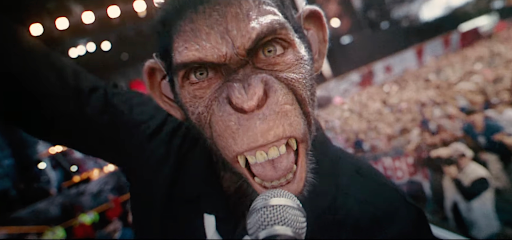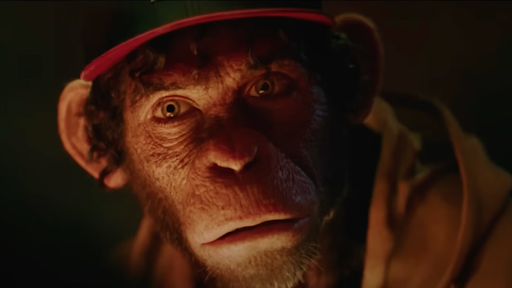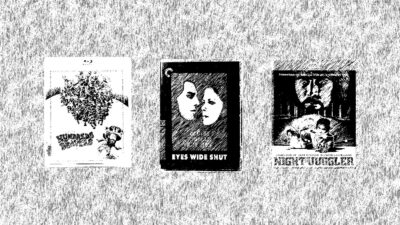I face the ban of TikTok (at least, the iteration that isn’t completely under the thumb of Donald Trump) in the United States with a bevy of mixed emotions. Agitation: at our government’s infuriating but inevitable decision to crush the internet’s most vibrant town hall. A tinge of happiness: at the prospect of spending a bit less time glued to my phone. Concern: that the self-described “refugees” of TikTok are going to agitate the kind and welcoming Chinese users of RedNote into an actual national security crisis just by being ourselves. Most of all, I grieve the loss of the platform where I created the alter-ego “The King of Burbank” and re-discovered my passion for film criticism. The entertainment journalism industry at large has lamented the existence of so-called “FilmTokkers” as a blight upon the medium, and I largely reject that notion. Most of the critics who I’ve met in the space are deeply sincere in their love of film and their desire to spread that passion. Unfortunately, after years of hard work, our mission has failed. When I look back at the end of this platform I called home, a common refrain will ring through my mind…
“Nobody in America knows Robbie Williams, why would I see a movie with him as a CGI monkey?”

The final round of film discourse on TikTok prior to its takedown and questionable return largely revolved around a homegrown smear campaign against Robbie Willams’ biopic BETTER MAN. Critics on the festival circuit lauded the simian retelling of his fraught life as an original and fanciful take on a done-to-death genre. Paramount bought it in the hopes of creating a cult hit, which is certainly an approach that worked wonders for director Michael Gracey’s previous (and far more vitriol-worthy) musical, THE GREATEST SHOWMAN. That film opened in the bygone days of 2017, where internet film discourse was largely syphoned off to niche circles on YouTube and an up-and-coming app called Letterboxd. Without the help of anyone from those platforms, it built organic word of mouth after a catastrophic opening weekend from people who spend time off their phones, an audience composed of theater-goers who happened to wander into it during the holidays. No such luck this time around.
—
Film discourse on TikTok is essentially comprised of two niches. The first is composed of the aforementioned creators of integrity and passion who enjoy and platform films of all stripes. The second encompasses the reactionary and incurious world in which we find ourselves trapped in. This cabal has a general disdain for movies and those who engage with them. They widely circulate jokes about “film bros” who dare to suggest “three-hour-long silent films about the collapse of the USSR as seen through the perspective of a rat” or “films from the 1950s with deep underlying themes and complex characters.” God forbid a movie be from another country, I guess. This group is widely obsessed with your garden variety American media, mostly the labors of the various extensions of Disney. Someone will post a snide take about SHE-HULK or something, and then 76 people will “stitch” that video with a response that is almost always a regurgitation of one common rebuttal to said take. People do their best to make their jabs unique, and it rarely amounts to anything productive. The worst of these impulses collided in the run-up to BETTER MAN.
Somebody somewhere made the first video talking about how they had never heard of Robbie Williams and were not interested in seeing him as a CGI ape. Someone else who perhaps was dismayed by the trailer followed suit. Then, 65 more people saw that video and made their own versions. Then, the thousands of fans of those 65 people followed suit. This animosity was exacerbated when people in the UK (who, believe it or not, can have different experiences than Americans) rightfully defended Willams’ international success. These defenses led to more and more stitches, some reiterating the already established point and others spreading clips of Williams’ popular tracks around to declare it as music for Target and Kohl’s. By this point, thousands of moviegoers were embroiled in what can only be described as an anti-marketing campaign. A game of opinion telephone: not based in any legitimate insight about the actual content of the film, simply hatred towards another country for liking someone who did not cross over to the United States.

To combat this, Paramount engaged in paid partnerships with many of my fellow movie creators. Near as I can tell, these were reviews that my dear friends had already posted after seeing the movie at festivals or press screenings that were then boosted by Paramount to get the word out. It did not pan out. My colleagues were all accused of being paid off by the studio to say positive things, the comments consumed with hatred at the very possibility that someone could enjoy this well-reviewed film. Nothing could change the narrative, not even the release of the charming and elaborately staged “Rock DJ” number, a clip whose comments are mostly saturated with people finding an arbitrary reason to dislike it. “Oh, they hit a woman in the face with a door, that’s so mean.” “Why is the monkey dancing like that?” They will never see the movie to find out.
—
I still have not done my duty as a critic to see BETTER MAN and provide an informed two cents.
It would have probably been advantageous for me to collect a final few thousand views pre-Trump takeover, to grab some fresh followers in case the app still sunsets and I have to figure out my second act. For the past few years, workaholism and completionism has driven my unending compulsion to jump into any hot button topic on the app. I’m not afraid of the hate comments. I’ve gotten so many at this point that they just bounce right off. I just have finally hit a point of exhaustion with conversation and recycled canned hatred of whatever the FilmTok enemy of the week is. This might’ve been my last chance to choose peace, and I did. All of this to say that TikTok was very effective at what it was designed to do: spread narratives.
In the context of the film industry, the potential loss of TikTok would be the sputtering death of a marketing engine. Suddenly, Warner Brothers can’t magically run an ad for MICKEY 17 in front of five million people against their will and pray that 250,000,000 will press like and learn more about when tickets are on sale. That impact on the box office (and all businesses, if we’re being honest) is why I remain skeptical about this truly being the end. However, if it is, my hope is that all of the people who put their heart and souls into this media slot machine for these past few years find the communities and fans who will appreciate the uniqueness of their work (and not just consume it as a piecemeal of larger discourse). Hopefully, the satisfaction of reviewing a movie for 6,000 curious people instead of 600,000 angry people will be enough. I’ll be sure to let you know.
I’ll probably wait for Paramount Plus for BETTER MAN, though.















Comments